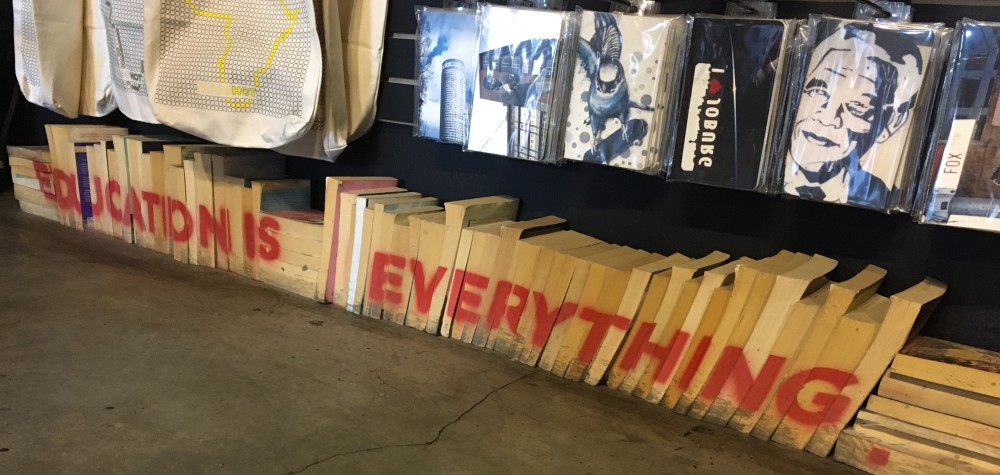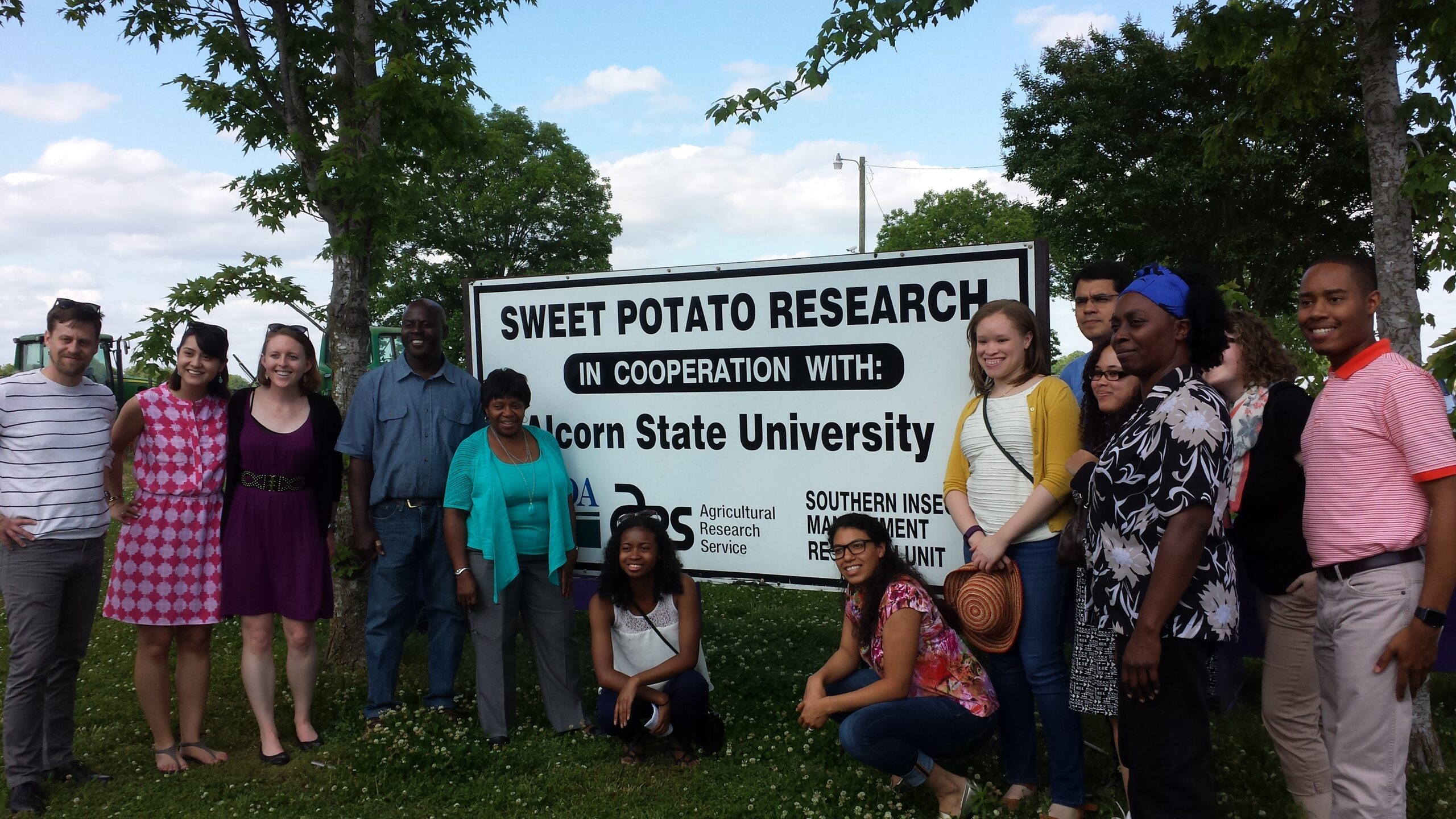We spend three days in Jackson, Mississippi. A day at rest includes a hike along the Natchez Trace Trail.
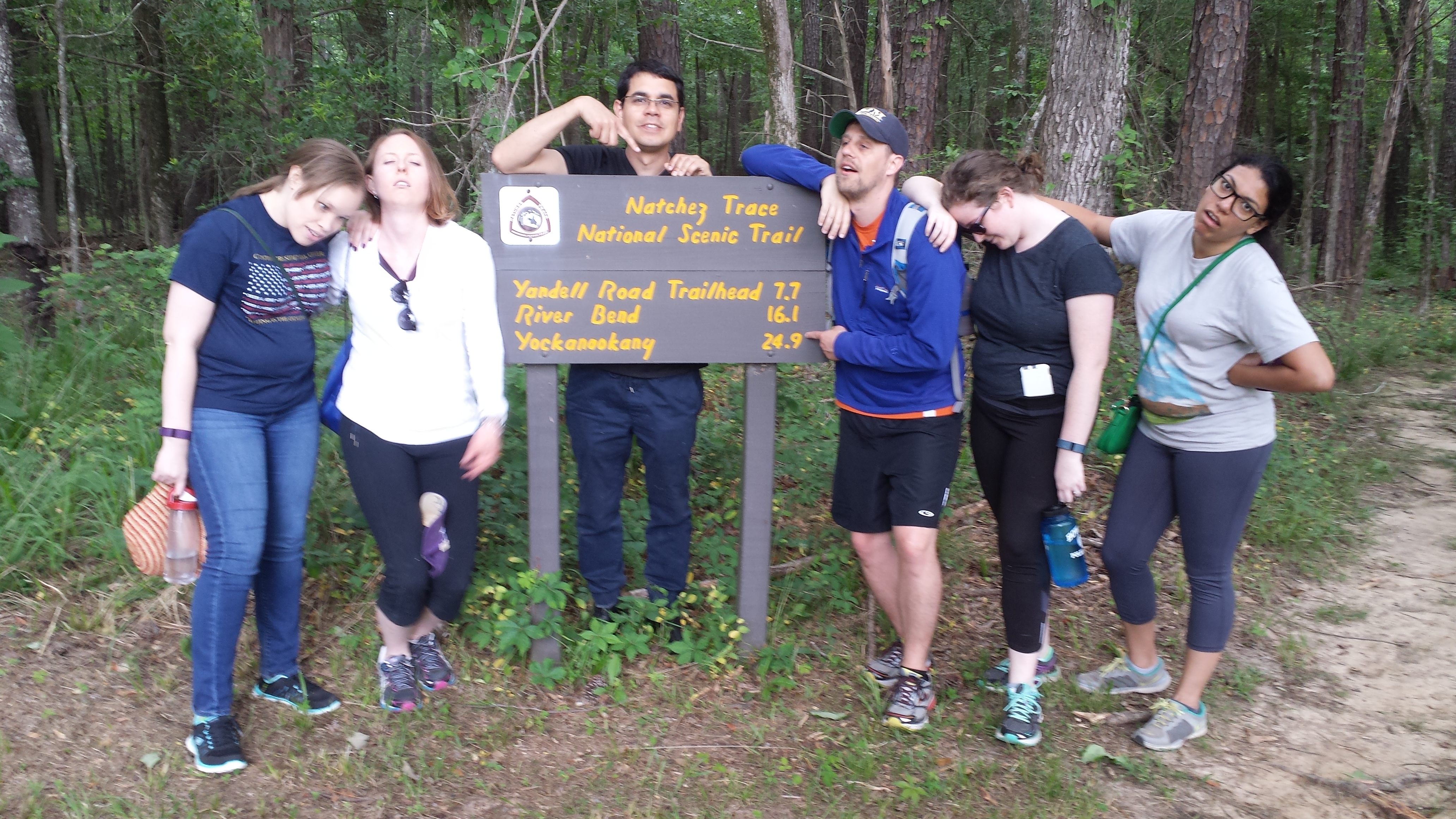
A few of us even have our first Waffle House experience!
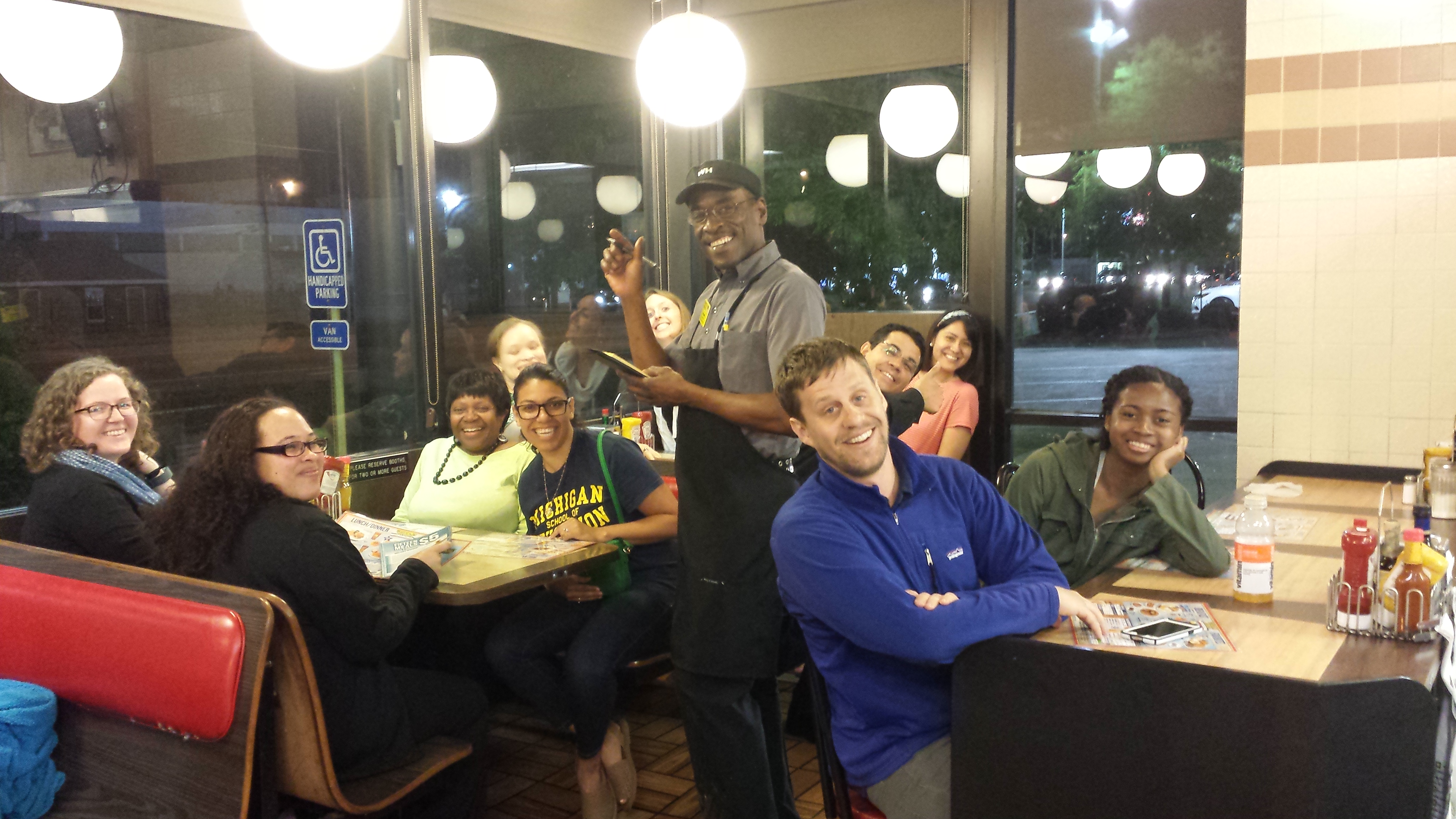
And did we mention laundry?
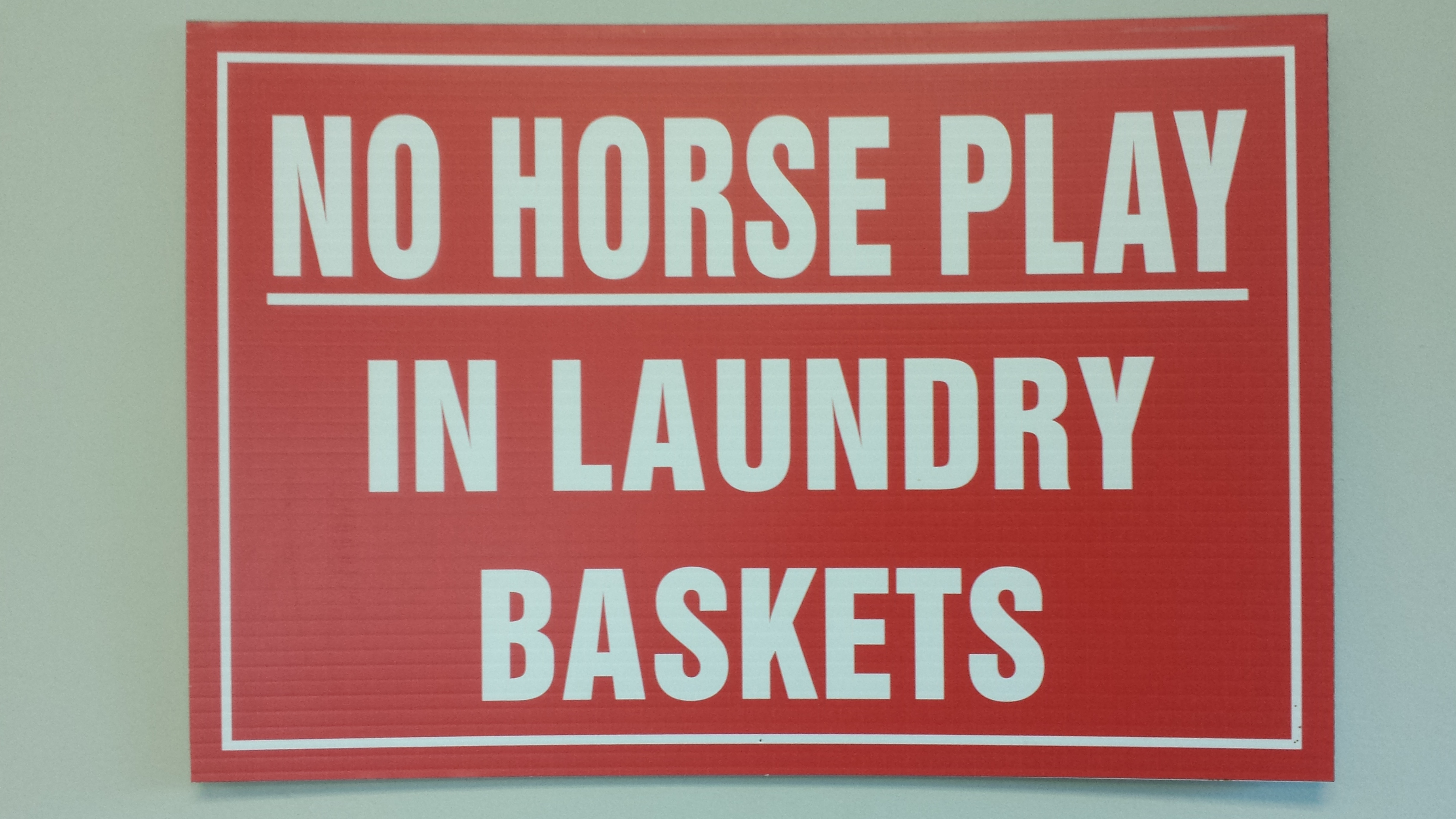
Our conversations the next morning with colleagues at Jackson State University focus on university partnerships and collaborations. We learn more about JSU’s plans to serve as host to the only Confucius Institute in Mississippi–what that means to the institution, and how it will serve the interests of JSU students.
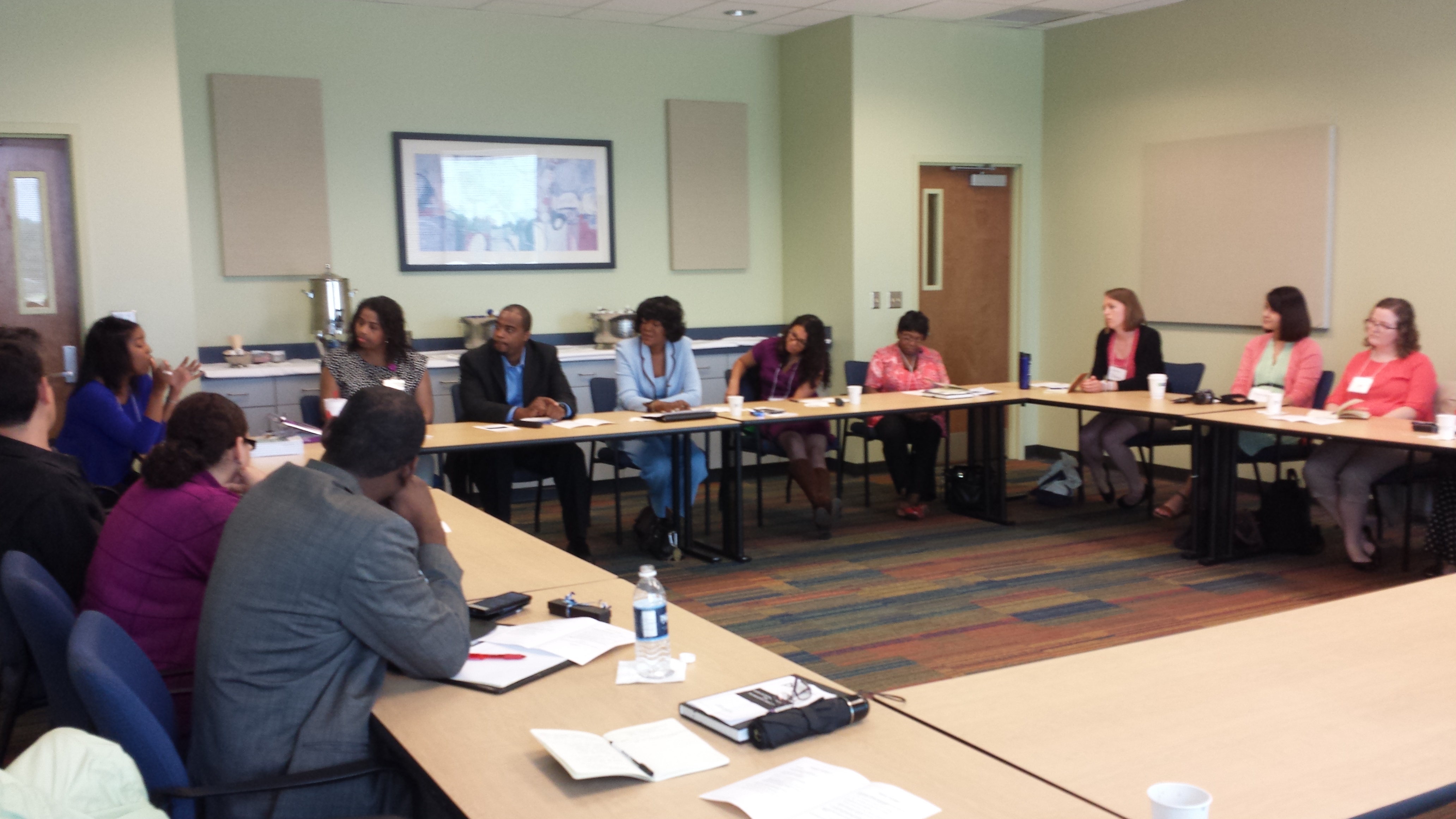
JSU – Confucius Institute – Thomas Calhoun
After talking to anyone at Jackson State University, you get the impression that they will not be satisfied with the status quo. While already a regional leader in postsecondary education, the administration at Jackson State see their reach expanding not only nationally, but globally. But this of course means building their reputation and providing access to programming that is currently not available or in short supply. One such initiative is the plan to establish a Confucius Institute on the campus. Confucius Institutes are overseen by the Chinese government’s Office of Chinese Language Council International, and are organized within postsecondary institutions worldwide with the intention of promoting Chinese language instruction and culture with local communities.
Spearheading the initiative is Dr. Thomas Calhoun, the Dean of the College of Liberal Arts. If Dr. Calhoun and his colleagues are successful, they would greatly increase the number of Chinese language instructors at Jackson State, making it possible for more Jackson State students to receive training in a highly sought after skill. Since Jackson State would be one of the few institutes in the region with a Confucius Institute it would no doubt make them more competitive and able to attract more students.
Personally, I was very happy to hear that Jackson State is set on this goal. Student’s need exposure to difference. The opportunity to learn from and live with individuals from vastly different backgrounds will not only open professional opportunities, but it will also open their minds. Dr. Calhoun’s conviction is clear when listening to him talk about this project. Without a doubt I am certain they will succeed in this partnership and will continue to create opportunities for their students.
–Steven Cederquist, master’s student
After only a few minutes on campus, I began to see Jackson State University (JSU)’s depth of commitment to promoting the success of its students. Our group had the opportunity to speak with administrators, faculty, current students, and recent alumni, each of whom added nuance and depth to our understandings of the purpose and practice of higher education.
Faculty and administrators at JSU are personally invested in student success. Throughout our conversations, current students and alumni shared moments when they felt seen, challenged, and supported in their pursuit of their degrees. Faculty members, including Dr. Ron Walker, Associate Professor of Educational Leadership and Research, have encouraged them to pursue further study and then to complete their dissertations. Administrators such as Dr. Dorris Robinson-Gardner, Dean of Graduate Studies, have reached out at just the right time with encouragement. These anecdotes speak to JSU’s culture of proactively and personally championing students.
In our conversation, Dr. Darcie Bishop, Associate Dean of Graduate Studies and Associate Professor of Music, asked a question that caused me to think a bit more carefully about their challenges: “what would it take for you [University of Michigan students] to come to JSU?” My own answer to this question, at once deeply personal and indicative of system-level forces, again reminded me of the complexity of college access and choice. I thought immediately of the social and political climate of Mississippi and my identity as a queer cis-woman. Having recently undertaken the graduate school application process with my partner, sociopolitical climate was a constant consideration in our search and decision process. Thus, Dr. Bishop’s deceptively simple question offered insights into the experiences and challenges of attracting students, faculty, and staff to a given institution for reasons both within and outside of an institution’s control (for example, geographic location).
Another large part of our conversation centered around partnerships between institutions. An integral component of partnerships for JSU is mutual benefit. How do all partners ensure that all involved benefit from the relationship? We discussed the importance of building sustained relationships, fostering communication, and intentionally navigating power dynamics as ways of promoting mutual benefit.
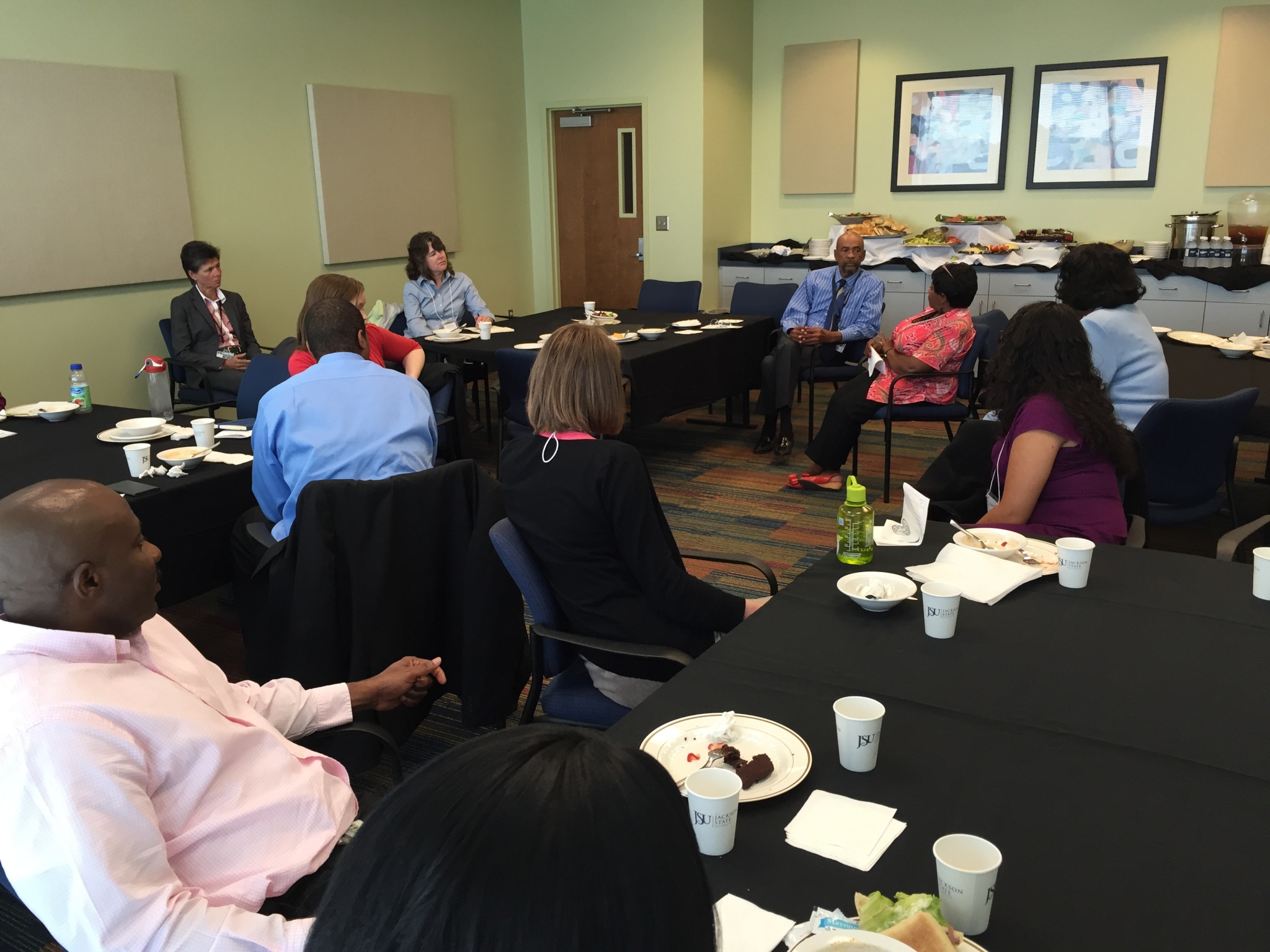
From this discussion, we brainstormed and created a list of ideas for possible partnerships between JSU and UM. For example, joint study trips (similar to our current trip) between institutions could enrich the academic conversations and expand the personal and professional networks of the participants. Another idea was to create synergy between faculty and graduate students based on research interests with the goal of advancing research agendas, publications, and presentations. Throughout this conversation, I was particularly struck by the great enthusiasm and potential for partnerships between institutions.
— Chelsea Noble, master’s student
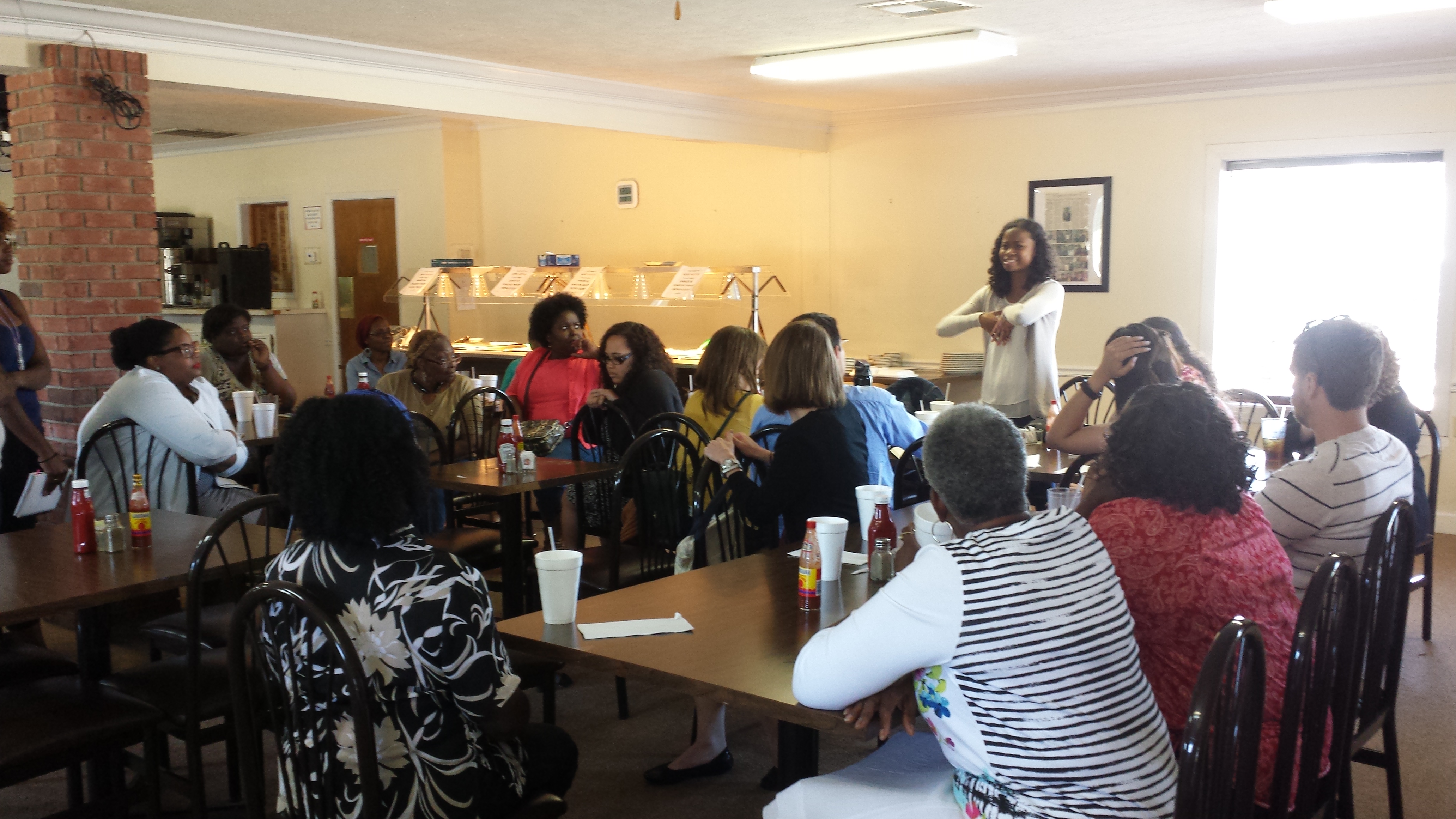
Natalie Collier, of the Children’s Defense Fund (CFD) – Southern Regional Office, provides our group with the opportunity to learn about that organization’s Young Women’s Leadership Institute. We meet with participants and volunteers of the Women in Agriculture program and tour the agricultural extension campus of Alcorn State University.
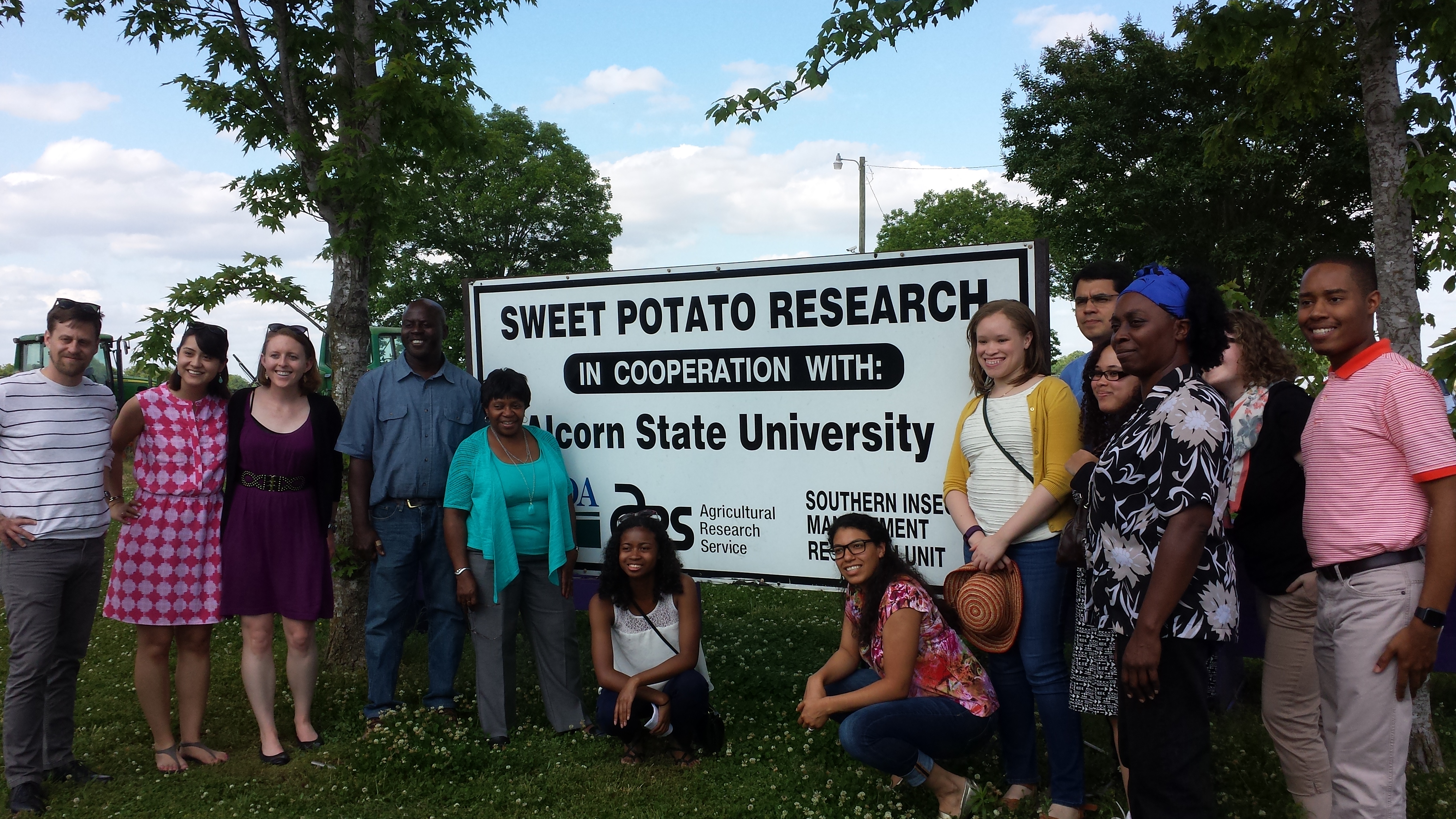
Valuing Our History
As a history buff, I find situating problems within a historical context incredibly informative when considering current realities. It helps shed light upon how real people were thinking and feeling in the moment, as well as what combination of social, economic, political and environmental forces were at play. Who gets to tell their stories, how those stories are told and preserved is also a curious thing. The adage, “history is written by the victors” paints a very flat portrait of our past.
An important part of this journey included contextualizing HBCUs within the larger struggle for social justice across the historical canvas of the U.S. We took time to listen to the voices of multiple stakeholders, and tried to pay attention when voices seemed to be missing.
While on university campuses we discovered the significant contributions and sacrifices made by student activists. For instance, the individuals we heard from while at Tennessee State University (Linda Wynn, Elizabeth McClain and Kwame Lilliard, Gloria McKissack, and Freedom Rider Ernest Rip Patton) described their decisions and involvement as students in the civil rights movement during the 60s.
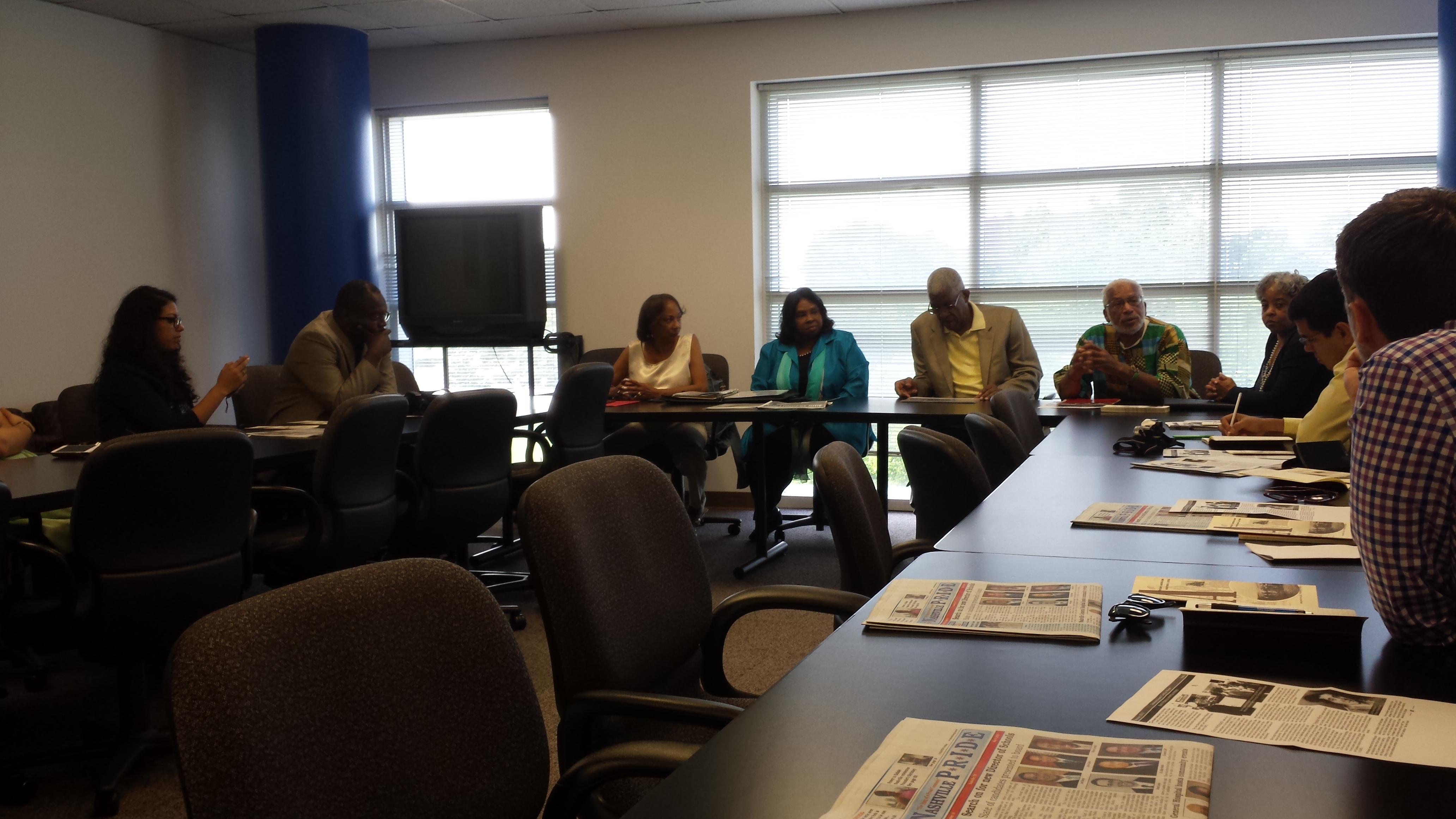
Kyle Southern, Director of Policy and Research for the Tennessee State Collaborative on Reforming Education (and CSHPE doctoral candidate) provided an overview of Nashville connections with the civil rights movement, including a tour of the timeline and displays located in Vanderbilt University’s John Seigenthaler Center.
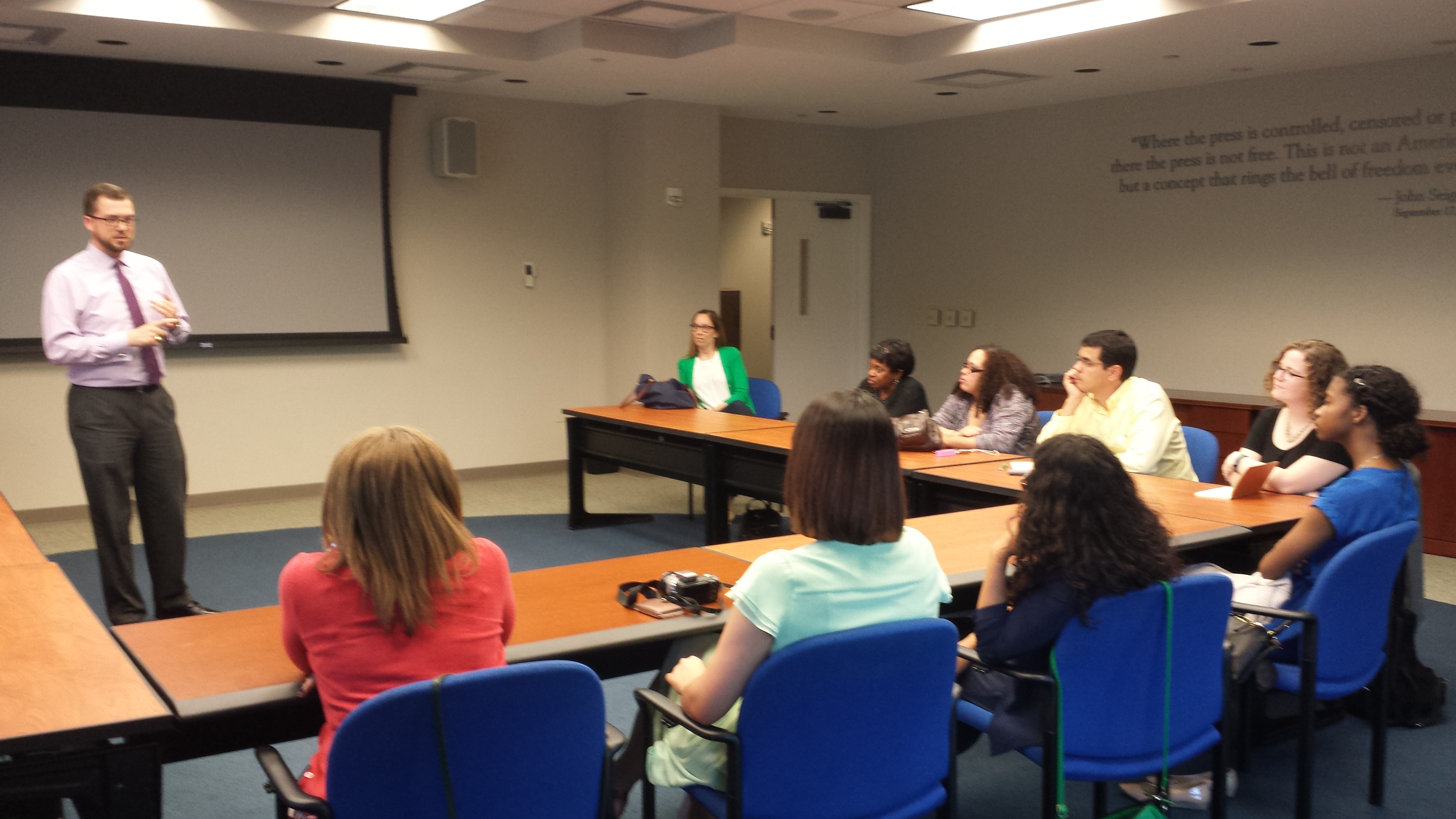
Dr. Valda Montgomery, at Alabama State University, shared her childhood memories of sheltering Freedom Riders in her family’s home during the summer of 1961.
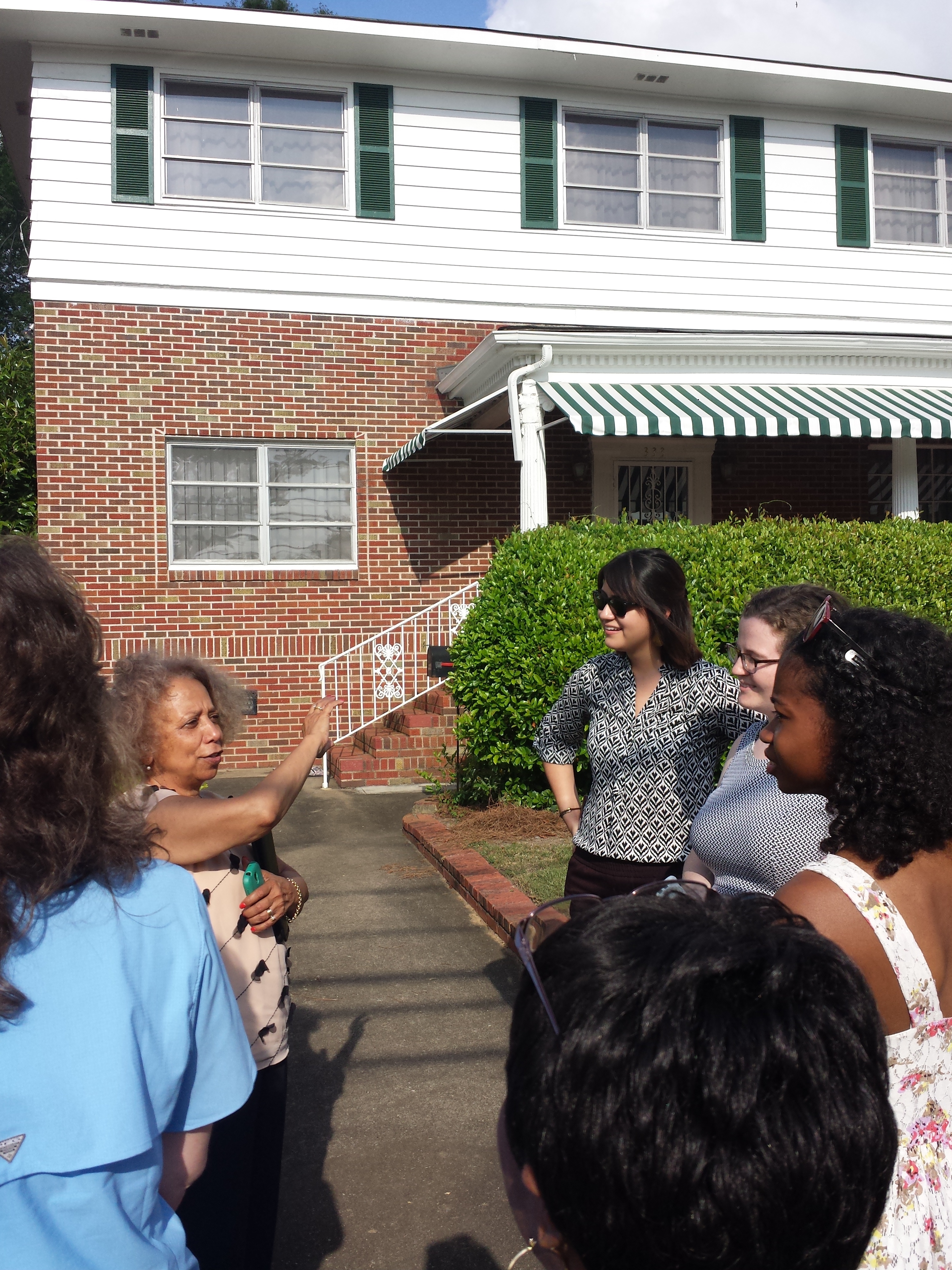
In Jackson, we visited the former home of NAASP field secretary Medgar Evers, which is now a national historical landmark—a well-maintained property nestled within the landscape of a residential neighborhood that has seen better days.
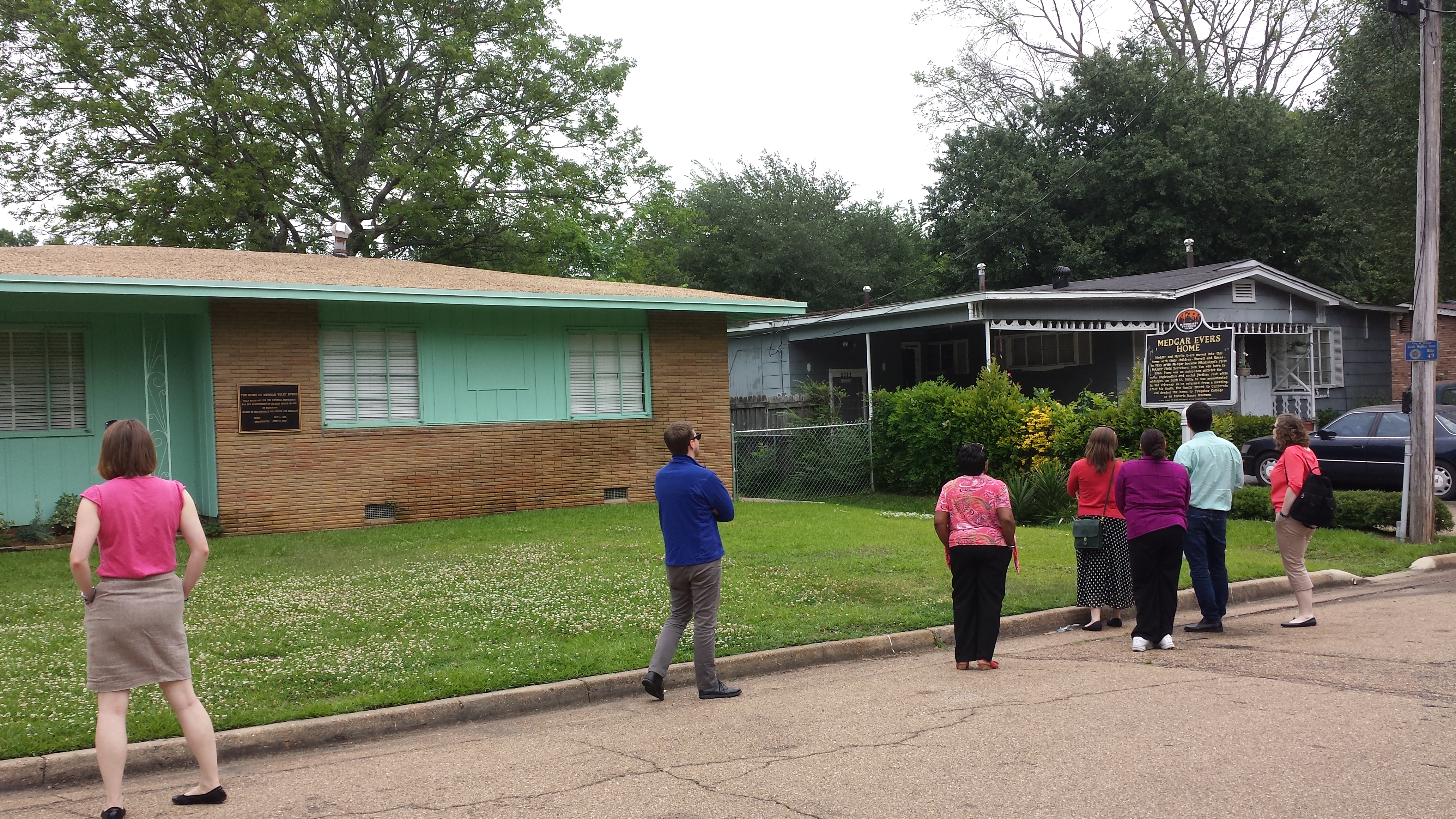
We also saw evidence of neglect along our way. Neglect of the people and places that help round out the story of the civil rights movement and the ongoing struggle for social justice.
While deep in the Mississippi Delta, CDF colleague Natalie Collier brought us to visit the home of Unita Blackwell in the small town of Mayersville. Ms. Blackwell was the first African American woman, and the tenth African American, to be elected mayor in the state of Mississippi. She was a project director for the Student Nonviolent Coordinating Committee (SNCC), and helped organize voter drives for African Americans across Mississippi. Behind her now abandoned and in severe disrepair home is an out building where SNCC members used to meet in secret. The Blackwells took a huge chance by involving themselves in the movement this way.
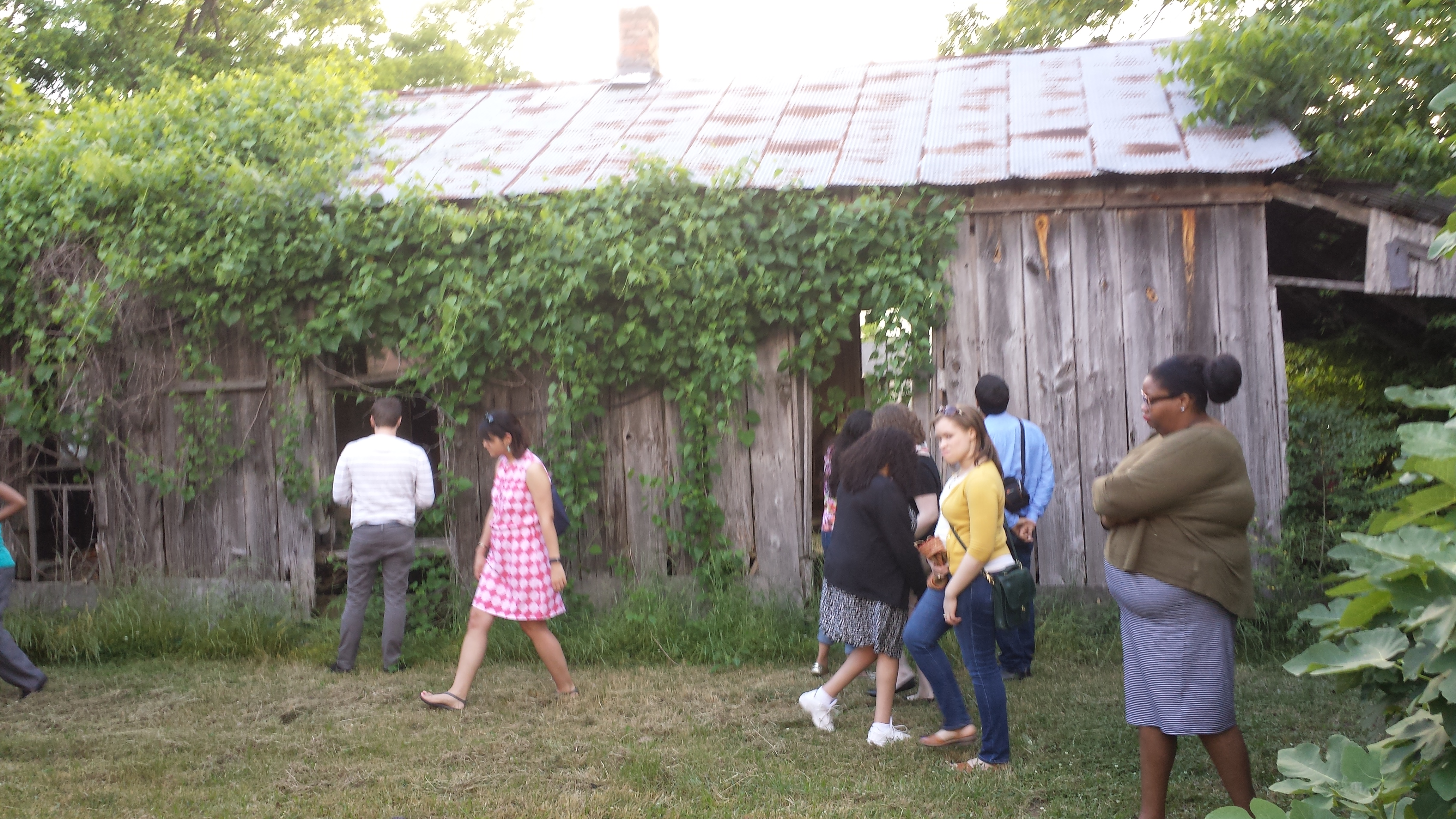
In Selma, I found it startling to walk across the Edmund Pettus bridge to find boarded up store fronts and bars on the windows.
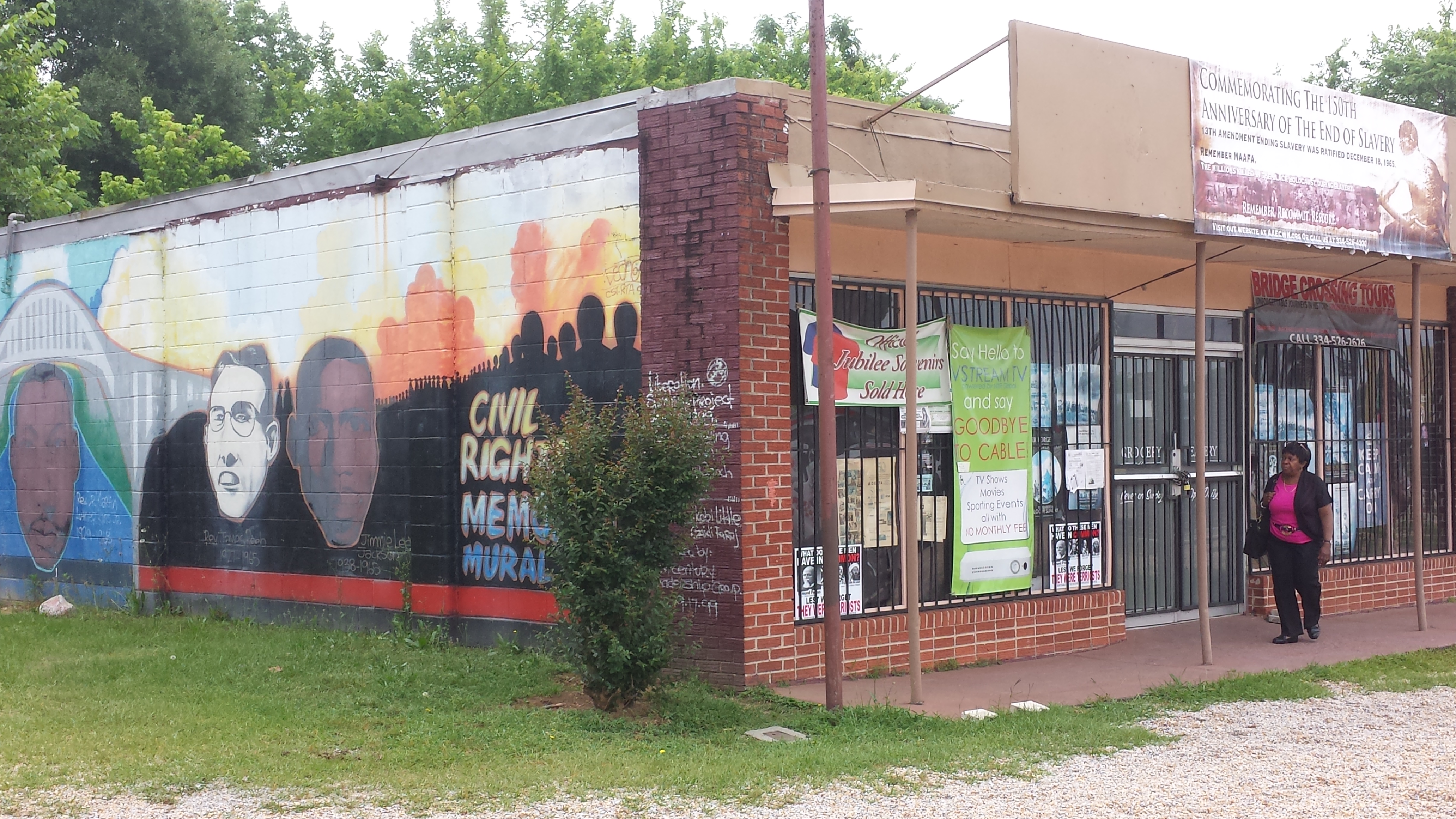
Some of these places may soon be lost to us unless, as a society, we care enough about their lessons to preserve them for future generations to visit and learn from. I hope we do!
–Melinda Richardson, CSHPE Assistant Director
